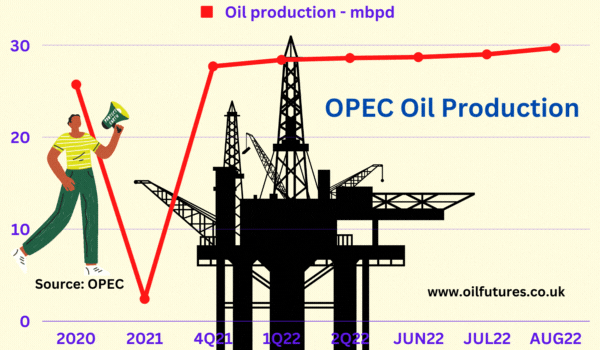The price of crude oil has been rising in the markets on Wednesday in anticipation of a production cut by the OPEC+ during its monthly meeting in Vienna, Austria.
Some ministers of the OPEC+ were seen arriving for the meeting in the morning, including the members representing Nigeria, Russia and Saudi Arabia; some members chose to join the meeting virtually, though.
It has been reported that Russia was demanding a substantial cut in production in light of falling global crude oil prices, exacerbated by the fear of recession, high interest rates, strong dollar and above all, the war in Ukraine.
By strange coincidence, the EU announced that the members agreed in principle to cap the price of Russian oil that needs the universal approval from the members; Hungary, a strong ally of Russia, has already opposed the move by saying it is against piling up more sanctions against Russia.
The move by the EU to imposing a price cap on Russian oil may not have gone down very well with the Russian delegation who participated the OPEC+ meeting that was underway in Austria in the afternoon.
Although most of the members may be in favour of a production cut amidst the falling oil prices, they may have been reluctant to annoy the US over the issue, as the latter vehemently opposes such a move; the US has been releasing the SPR for six months at the rate of 1 million barrels a day something that the Biden administration associates with the recent drop in the price of oil.
Since the administration was not keen on extending the release of SPR for any longer - and for obvious reasons - it could not afford to let the market suffer the supply woes in the event of OPEC+ makes a substantial production cut.
Despite the odds against the move, OPEC+ has agreed to cut the production by 1..1 million barrels and the oil traders could breathe a sigh of relief after weeks of uncertainty over the falling crude oil prices.
The production cut, however, is smaller than what the politicians in the West feared.
With a production cut of this size, the US still can offset any potential fall in the supply by extending the release of SPR beyond October.
As of 15:20 GMT, the prices of WTI and Brent stood at $87.17 and $92.66 respectively in response to the reported cut in production.
The production cut, however, is a setback for the Biden administration, indeed. They failed to stop it from happening despite the pressure.
Since the mid-term elections in the US are not far off, the administration wielded its economic and political influence in discouraging the OPEC+ resorting to a production cut - especially due to Russian influence - but to no avail.
The development will put the administration in a very uncomfortable lurch if the prices at pumps go up again, causing enormous problems for consumers at many different levels.
The production cut announced by the OPEC+ shows that it has been walking a tight rope in striking a balance, because the Joint Technical Committee of the OPEC+ recommended a production of 2 million bpd, a few hours earlier on the same floor.







